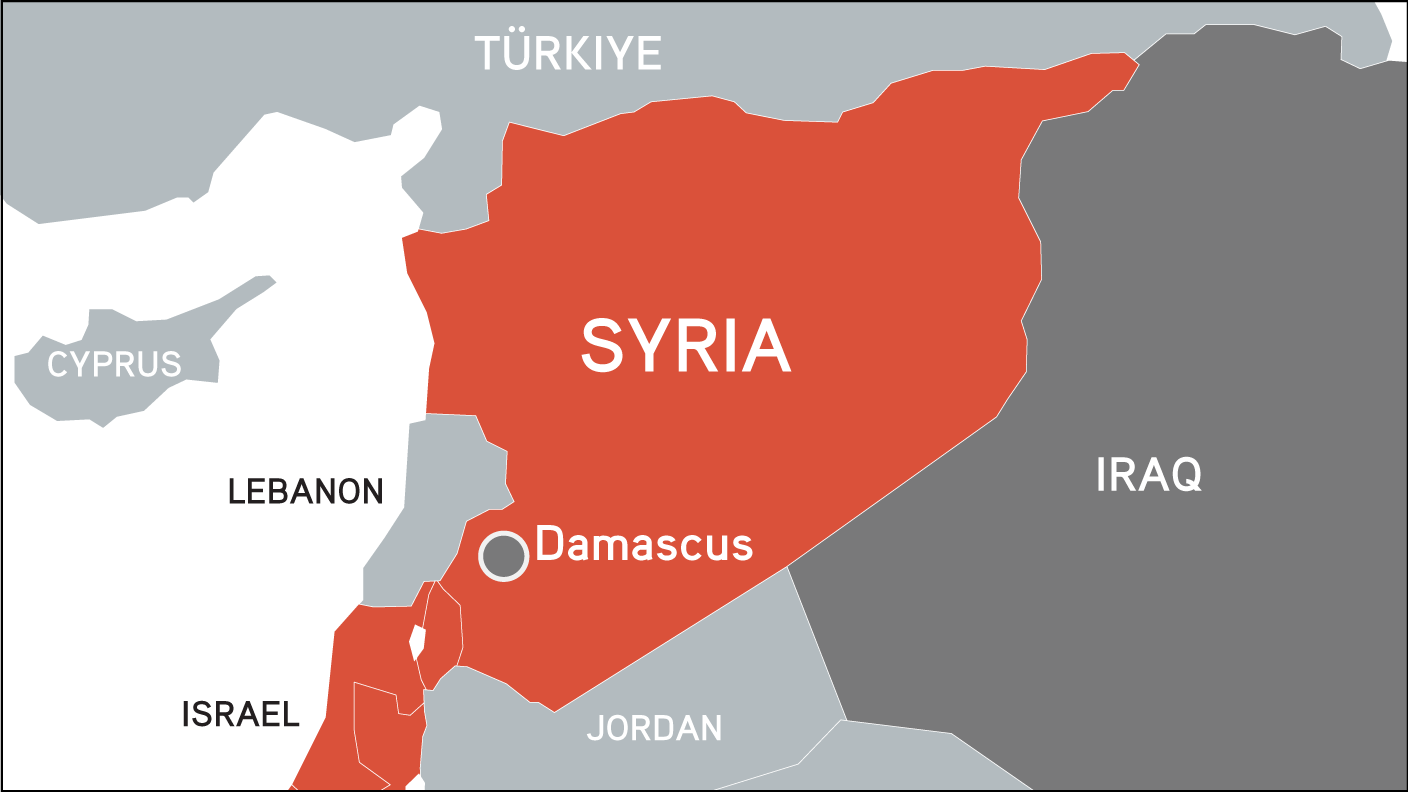
Syria’s newly established government forces intensified their security operations across the coastal region on Thursday following an attack that killed 14 policemen the day before. State media reported that the authorities vowed to root out the remnants of the former Bashar al-Assad government, holding them responsible for the deadly assault. The crackdown marks a significant shift in Syria’s internal power dynamics, as the new regime seeks to assert its authority and eliminate any opposition remnants.
The security operation began with coordinated raids targeting suspected hideouts of insurgents in the coastal areas, particularly in Latakia and Tartus. These regions, once strongholds of Assad loyalists, have become increasingly volatile amid shifting political allegiances and rising rebel activity. The attack on the police officers, which occurred in the early hours on Wednesday, has fueled an already tense situation in the area, leading to further militarization and tighter control over civilian movements.
According to state-run news outlets, the new government, formed after the overthrow of Bashar al-Assad’s regime earlier this year, has vowed to pursue all factions connected to the former president’s government, labeling them as “terrorist remnants.” The authorities have not provided specific evidence linking Assad loyalists to the attack, but claims from the new government suggest that these factions are attempting to destabilize the nascent administration. Military forces have set up roadblocks and checkpoints across strategic areas, and there has been a noticeable uptick in surveillance and intelligence-gathering operations.
International reactions to the crackdown have varied. Some regional powers, particularly those aligned with Assad’s ousted government, have condemned the new authorities for what they term as excessive force. At the same time, other nations see the operation as an essential step for the new government to solidify its rule and curb the influence of opposition groups. Local communities, meanwhile, are caught in the middle, with many civilians reportedly fleeing the areas of conflict, seeking refuge in nearby towns or even crossing into neighboring countries.
This military escalation comes on the heels of several months of political uncertainty in Syria following the collapse of Assad’s regime. After years of war and foreign intervention, Syria is now struggling with the complex aftermath of its civil war. As the country transitions from Assad’s autocratic rule, the rise of new political factions has exacerbated regional divisions. The new authorities have attempted to stabilize the country by consolidating power among military and intelligence officials, but this approach has sparked fierce resistance from groups loyal to Assad, who still retain substantial support in various regions of the country.
The crackdown also appears to be a direct response to growing dissatisfaction within the security apparatus, with some factions of the former regime remaining loyal to Assad’s ideology. These forces, though significantly weakened, continue to challenge the new administration, engaging in sporadic attacks and guerrilla warfare. The military has increased patrols and has reportedly intercepted numerous communication channels between opposition leaders, aiming to prevent any organized resurgence.
The Syrian civil war, which began over a decade ago, has left the country fractured into competing zones of control, with foreign powers playing an influential role in shaping the conflict’s trajectory. While the downfall of Assad brought hope for political change, the new authorities face an uphill battle in uniting the country under a single government. Sectarian divides, economic instability, and the persistence of armed opposition groups have created a volatile environment that hinders the establishment of lasting peace.
Syria’s coastal region, traditionally a center of power for the Assad regime, has witnessed substantial shifts in loyalty since the regime’s fall. The ongoing crackdown signals the new government’s determination to neutralize any threats to its rule, but the use of force has raised concerns about the long-term stability of the region. International actors, including the United Nations and neighboring Arab states, have called for restraint, urging the new leadership to prioritize dialogue and reconciliation over further military escalation.
As tensions remain high, the fate of Syria’s coastal region continues to hang in the balance. The security crackdown may serve to deter immediate threats to the government, but it risks deepening existing divisions and alienating the population. With Syria’s political future still uncertain, the new authorities’ actions in the coming months will be crucial in determining whether the country can begin the difficult process of rebuilding after years of war and dictatorship.



